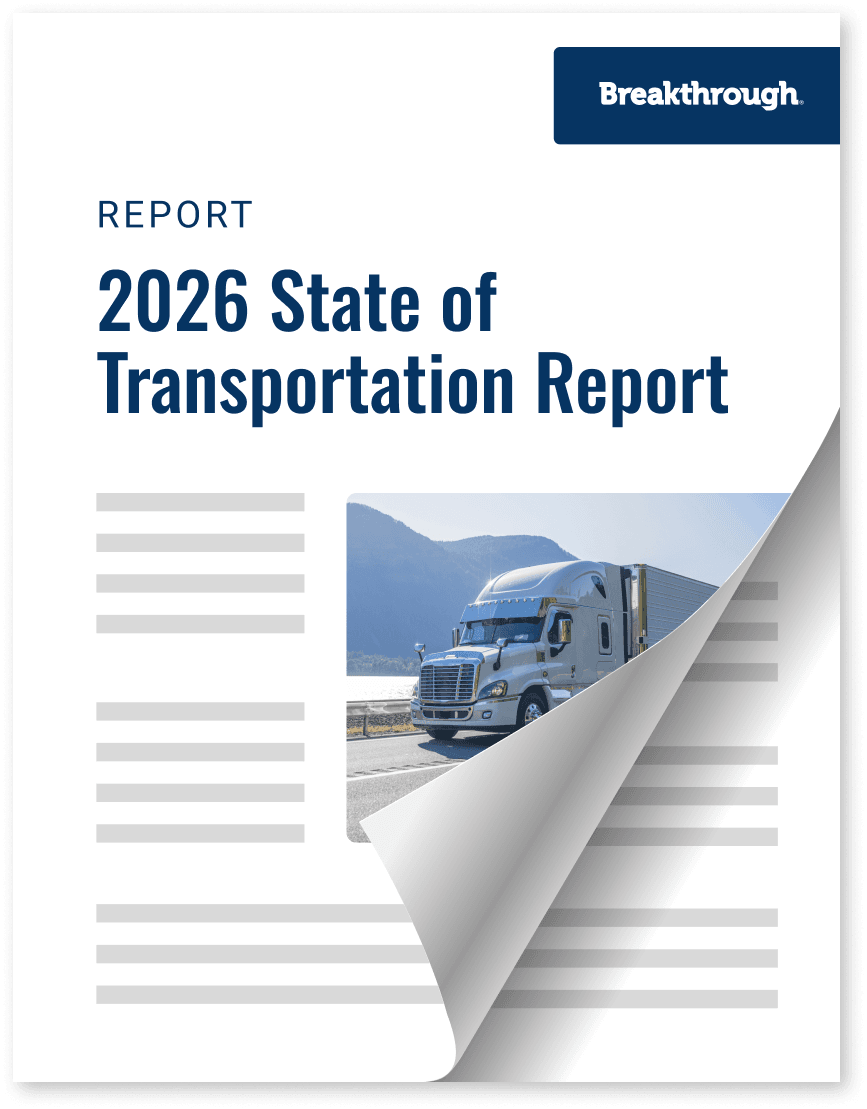2026 State of Transportation Report

Trending
Top Posts
3 min read
October 15, 2020

Share:
Table of contents
Browse the table of contents to jump straight to the part you’re looking for
Across boardroom conversations and headlines there is a growing consensus about transportation’s importance in our society. What was once an unseen science in some circles, has infiltrated top-tier headlines, settled at the center of newsrooms, and worked its way into household conversations. The “supply chain” challenges of 2020 are at the forefront of a year filled with unprecedented events.
From getting PPE to frontline workers, to flooding store shelves with cleaning products and food, to equipping families to shelter at home, truck drivers, warehouse workers, and the teams that organize the flow of the transportation industry kept the world turning in 2020.
So much is at stake right now—and the transportation industry cannot afford to continue doing business as usual. We have seen both the supply chain’s resilience and its limitations in response to the coronavirus pandemic. So how do we shift our sights into the future of this industry?
The key will be a balance between remaining committed to foundational principles and supporting them with advanced data processing and strategic thinking. This type of relationship exists between the quantitative challenges facing transportation and its qualitative relevance to the rest of society.
For transportation, the future of innovation lies in the question, _how do we source better capacity, at better prices, with better service outcomes? _To do this, we need to uphold the integrity of old processes (procuring capacity) and reimagine them with better data and new execution (the advent of the mini-bid and ongoing compliance management).
Shippers, carriers, brokers, and third parties alike are recognizing this new frontier in the industry, launching new capabilities and the next shiny new tech, but to actualize this transformation, shippers need to rethink their strategies and seek deeper, systemic change.
To learn more about how Breakthrough is thinking about the future of data, relationships, and the industry at large, download our first-ever Transportation Leadership Journal. We interview experts from opposite corners of the academic and operational spectrum to connect the dots between the transportation world as we know it, and the future of moving goods to market.
The world is changing in a myriad of ways—from personal to professional and on a global scale. To not only keep pace, but to remain ahead of the curve, this is the time for transportation transformation.


4 min read
February 18, 2026
Join Breakthrough at industry events this spring. Meet with our experts to learn how you can cut costs and decarbonize your network.
Read more
5 min read
February 13, 2026
Explore the key factors driving the price of diesel, from refining premiums to global supply, and why these prices differ from crude oil costs.
Read more
6 min read
February 12, 2026
Discover actionable strategies to improve fleet fuel efficiency, reduce transportation costs, and achieve sustainability goals. Learn how data-driven insights can transform your MPG calculations and fuel reimbursement programs.
Read more